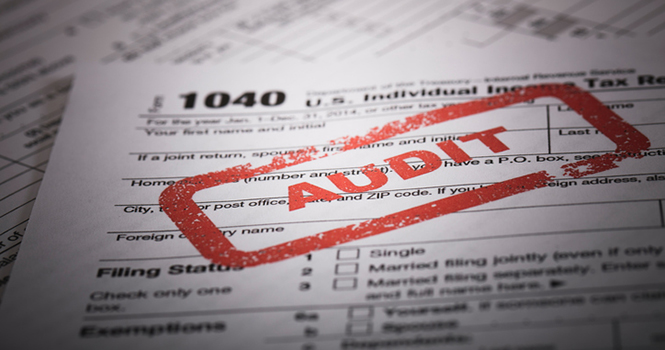According to the IRS, about 20 percent of U.S. income tax filers—that’s one out of five—wait until the week of April 15 to crunch out their returns, and approximately 61 percent of those returns are balance-due.
If you are a busy REALTOR®, and you know you are going to owe, mission No. 1 is to minimize the likelihood of being flagged for an audit. In the event you may have forgotten to organize a few receipts along the way, or maybe mixed up some of your work-side and home-side accounting, there are a few things you can do to remain low and on the far edges of the audit radar screen.
Here are a few things you should know:
Higher Income, Higher Risk
Did you know that as your income rises, the chances of an audit rise along with them? If your income topped $200,000, your chance of being audited doubles from 0.85 percent to 1.75 percent, according to a 2014 IRS report. That means those of you whose income is creeping up need to use some of that hard-earned cash to employ even better and more meticulous tracking of things like receipts, charitable donations and mileage. Have you considered asking a real estate attorney about whether it’s time to convert your sole proprietorship to an LLC? Maybe it’s time to consider switching from doing your own taxes to hiring a professional who can keep an eye on your records and all your possible reductions—on a quarterly basis, if needed. That subject comes next.
Pay Quarterly…Faithfully
When you go to work for yourself, you have to start looking at yourself as though you were an employee when it comes to separating money out of your income specifically to cover your taxes, which in most cases should be paid quarterly to the IRS, and in some cases to the state where you live or operate. Use IRS form 1040-ES to determine the appropriate amount to withhold. Failing to pay quarterly taxes, or making payments that are consistently too low, can not only cost you in the form of penalties, but also red flag an audit.
Log Every Mile You Roll
REALTORS® are constantly driving, and some weeks can really put some wear and tear on your vehicle, as well as draining a few tanks of gas. Maximize your mileage deductions to reap the full benefit, but beware, because a lack of accurate mileage deductions can be a real problem in the event of an audit. A top mileage-related audit flag to avoid like roadkill is grossly over-representing mileage as it relates to your adjusted income. There are ways to make it easier on yourself if you are starting to track, or want to improve tracking your vehicle and mileage for tax purposes. Just be sure if you are doing so to use an app that it is IRS-compliant, like the mileage tracking feature in QuickBooks Self-Employed.
Don’t Be Unreasonable!
Bet you didn’t know that despite the ominous news of an IRS audit, tens of thousands of taxpayers walk out of those audits every year cashing a check instead of writing one. However, deductions that may be out of sync with reported earnings are one of the more frequent entries that make a tax filer vulnerable to audit. The IRS knows from experience that sole proprietors tend to minimize earnings and maximize deductions, so avoid deductions that aren’t necessary for your business. Expense only legit business expenses.
Earn, Baby, Earn
A surefire way to catch the attention of audit screeners is filing no adjusted gross income. You are five times more likely to be audited if you report no AGI, according to the IRS. When the IRS sees a zero-adjusted gross income, the agency may feel compelled to check whether you inflated deductions to zero out taxable income. It’s easy to avoid applying appropriate deductions as long as you maintain good tracking of your business receipts. Many REALTORS® use receipt-capturing phone apps, like QuickBooks Self-Employed.
Give Generously, Record Meticulously
Philanthropy in any form is a good thing—but an audit because of what may appear to be out-of-balance generosity compared to your income is not. So just like with mileage, avoid guessing or inflating charitable deductions. It cannot be overstated: Keep records of all receipts for charitable contributions. The IRS has limits on how much you can deduct based on your adjusted gross income, so ensure your reported donations don’t go over the allowable limit.
Commuting Down the Hall?
If you are among the millions of Americans occupying and operating home office space, you have a lot of legitimate and rightful opportunities under the tax law to minimize your out-of-pocket costs through deductions. Generally, things from supplies, equipment, furniture and even tax software and preparation services to a portion of household utilities, repairs and real estate taxes can be included. While the likelihood is minimal, an IRS field agent could someday come knocking to verify your dedicated home office space is not being used for other purposes, such as a TV room for your kids.
For more information about QuickBooks Self-Employed, please click here.












